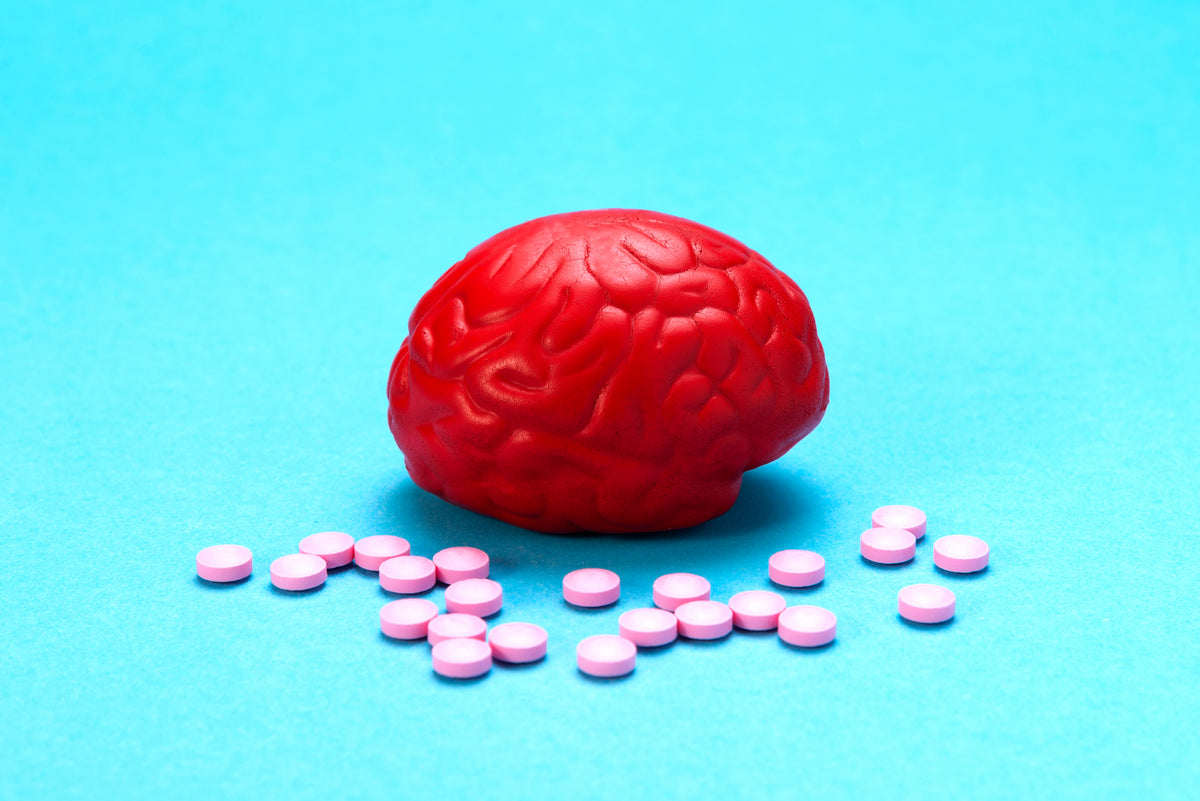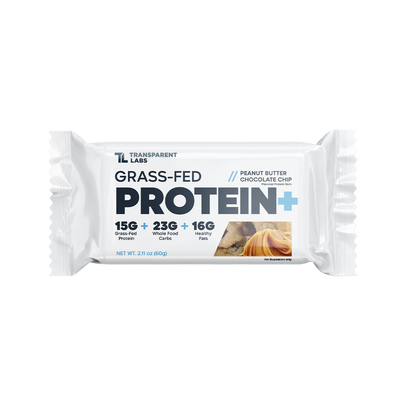How Do Nootropics Work? Everything You Need to Know about Smart Drugs

If you’re new to the world of nootropics (“smart drugs”), you’ve come to the right place. Given their versatility and multifunctional properties, it's no surprise nootropics are quickly blooming into one of the most popular dietary supplement niches.
The problem when navigating the nootropic space is that there is so much misinformation and nonsense behind how these colloquial “smart drugs” actually work and which ones have good evidence backing them.
Many nootropic pills claim to optimize cognitive function, increase focus, and improve your resilience to stress, which is certainly plausible with the right formula. The catch is that many nootropic supplements are sugar-coated caffeine pills, or worse, they contain harsh stimulants that become highly addictive (1,3-DMAA anyone?).
The stimulant-free option is ideal for those who would like a cognitive lift in the evening close to bedtime, and those would rather get their caffeine from other sources, such as coffee and pre-workout supplements.
Chances are you’re still wondering what nootropics are and how they work. This article will get you up to speed on these so-called “smart drugs” and what the research has to say about their effects on mental performance, mood, stress, and longevity.
What are Nootropics?
In a literal sense, we all ingest nootropics daily through food and beverages, notably vegetables/fruits, coffee, tea, and energy drinks. A classic example is caffeine - the world’s most widely consumed stimulant “smart drug” (1).
Yes, caffeine is a “drug” despite naturally occurring in plants. Many drugs come from plants; morphine comes from the opium poppy, cannabidiol (CBD) and tetrahydrocannabinol (THC) come from Cannabis sativa, and cocaine comes from the coca plant. Coincidentally, these would all be considered nootropics in the sense that they have profound effects in the brain and throughout the nervous system.
And that right there is the general definition of a nootropic: A substance that has therapeutic effects in the brain/central nervous system (CNS), specifically for learning, memory, and resistance to stress.
Thankfully, nootropics you find in supplements are typically much safer than drugs like cocaine and morphine. Many people are turning to nootropic supplements for boosting mental performance and relieving anxiety instead of prescription drugs.
Smart Drugs vs. Prescription Medications

Nootropic advocates and “neurohackers” alike will make the distinction that “smart drugs” - a clever term for nootropics - are different from prescription medications in that they are better for longevity and bolstering neuron function from the ground up. This is a reasonable stance given that nootropics like NeuroFactor™ coffeeberry extract have been shown to increase brain-derived neurotrophic factor (BDNF), even in acute doses (2).
Another commonly held belief is that the synthetic origins of drugs like selective serotonin reuptake inhibitors (SSRIs) and benzodiazepines make them unhealthy for the brain in the long run, while natural nootropics are inherently good for longevity.
Though, the logic with that line of thinking is flawed for several reasons, one being that the term “nootropic” was coined in the mid-1900s when a compound called piracetam was synthesized by Romanian chemist Corneliu E. Giurgea (3). Ironically, there are now many synthetic racetams and related nootropic ingredients on the market, some of which are readily sold over-the-counter in supplements that claim to “boost cognitive function ‘naturally.’”
The second reason is the major misconception that every substance found in nature is “good for us” while synthetic compounds are intrinsically “bad for us.”
Have you ever heard of cyanide? Or ricin? Guess what? They come from plants. Many fruit seeds contain cyanogenic glycosides that, when ingested, create cyanide.
Surely, we’ve all incidentally swallowed a couple of apple seeds from time to time - yet, we’re still alive! Heck, the immediate metabolite of ethanol (alcohol) is acetaldehyde - a known carcinogen (4).
Likewise, plenty of people have popped a few Tylenol (acetaminophen) or Advil (ibuprofen) capsules in their lifetime and experienced no lasting consequences.
These examples illustrate a key principle about all substances, whether natural or synthetic: The difference between medicine and poison is the dose.
The body is incredibly receptive to infinitely many compounds, and it’s not particularly concerned about the origin of those chemicals - it’s more so concerned with how much of them you ingest. You can hydrate yourself to death (literally) with water if you really want to.
Of course, this is not to say that prescription medications are the solution to all of life’s problems, nor does it mean synthetic chemicals are always safe. It's more so giving you an idea of the diverse nature of what we call “smart drugs.”
How Do Nootropics Work?

Nootropics are compounds that work primarily by:
-
Optimizing cognitive function and mental performance
-
Balancing neurotransmitter synthesis and signaling
-
Providing the necessary precursors to protect and regenerate neurons
-
Defending against oxidative stress and neurodegeneration
-
Promoting blood and oxygen flow to the brain
Intuitively, the target of nootropics is the CNS (brain and spinal cord).
To keep it simple, the CNS is essentially the “command center” of all the body’s inputs and outputs. There are many “chemical messengers” (neurotransmitters) that cells in the nervous system (neurons) rely on to communicate these inputs and outputs. Everything we experience and perceive is governed by the CNS, whether it’s a simple conversation with your friend or your brain telling you it’s time for dinner.
Without getting too technical, nootropics work by modulating the CNS either at the cellular level (e.g., neuroregeneration) or the molecular level (e.g., neurotransmitter regulation). If that’s still too “sciencey,” just think of nootropics as substances that act throughout the CNS to augment higher faculties, such as learning, memory, perception, and stress adaptation.
For example, GABA (gamma-aminobutyric acid) is a “calming” neurotransmitter that acts on virtually all neurons in the CNS to inhibit action potentials. Hence, nootropics that modulate GABA activity, like L-theanine, are revered for their beneficial effects on stress and anxiety (5).
On the contrary, there are excitatory neurotransmitters like dopamine and acetylcholine; these neurotransmitters stimulate action potentials and “awaken” neurons that regulate things like motivation, memory, and concentration.

Caffeine is a renowned stimulant nootropic due to its “mood-boosting” effects, which are largely the result of an increase in excitatory neurotransmission (6). Interestingly, caffeine and L-theanine have synergistic effects by “balancing each other out” and creating a smoother, longer-lasting elevation in mood and focus (7).
But there’s much more to a quality nootropic formula than just caffeine and L-theanine.
For mental performance and cognitive function, a promising nootropic is Cognizin® citicoline. This patented form of CDP-choline is a superior source of the essential B vitamin choline, which the body needs to synthesize acetylcholine.
Many cognitive diseases, notably Alzheimer’s disease, are associated with declines in acetylcholine transmission (12). A major reason why people with Alzheimer’s have severe memory loss and learning difficulties is the loss of neurons that transmit acetylcholine. Nootropics like Cognizin® citicoline may hold long-term therapeutic potential by preventing this loss as we age.
A recent clinical study showed that a single 500 mg dose of citicoline boosted both plasma uridine and choline levels significantly for upwards of six hours (7). These results are favorable for not only cognitive performance, but also neuronal integrity since choline and uridine are essential for creating membrane phospholipids (8, 9).
Phosphatidylserine (brand name SerinAid®) is another well-studied nootropic that protects neurons and glial cells in the brain by acting as both a signaling molecule and membrane phospholipid (9). SerinAid is unique in that it’s a plant-based source of phosphatidylserine that has been shown in placebo-controlled human research to reduce stress and improve mood (10, 11).
Indeed, there are several other ways nootropics work to restructure and beneficially rewire the brain. NeuroFactor™, as mentioned earlier, is a standardized coffeeberry extract that increases the production of BDNF - a peptide that stimulates neuroregeneration (9).
As you can see, nootropics are no joke. They are both fascinating and promising, to say the least. There is a good amount of research backing the efficacy and safety of various nootropic ingredients; as time evolves, studies will continue to uncover the potential benefits of these “smart drugs.”
Benefits of Nootropics: What You Should (and Should Not) Expect

It’s important to have realistic expectations about the benefits of nootropics; if you’re coming from a background of using prescription stimulants or benzodiazepines, you should realize that nootropic pills are likely not to going to elicit the same effects. Don't misconstrue this as meaning nootropics are “inferior” because ultimately, this boils down to striking a balance between efficacy and side effects (i.e., the therapeutic index).
There is no shortage of anecdotal reports from people about how nootropics can take your mental performance and cognitive function to uncharted territories. Many will even go so far as to say nootropic supplements are comparable to a real-life “limitless pill” (in reference to the popular 2011 film Limitless).
In all seriousness, that’s a silly comparison. There is no actual “limitless pill,” and even if there were, you wouldn’t find it in a dietary supplement.
Also, consider that there are reasons drugs like amphetamine and alprazolam are controlled substances in many countries, one being that they are very addictive (i.e., they have a high potential for abuse) and the other being that they come with a host of side effects.
Hypothetically, a real-life “limitless pill” that turned you into a cybernetic genius for a few hours would most certainly have drastic side effects and an insufferable withdrawal period.
On that note, be sure to check out these seven science-backed tips for improving your focus and productivity!









